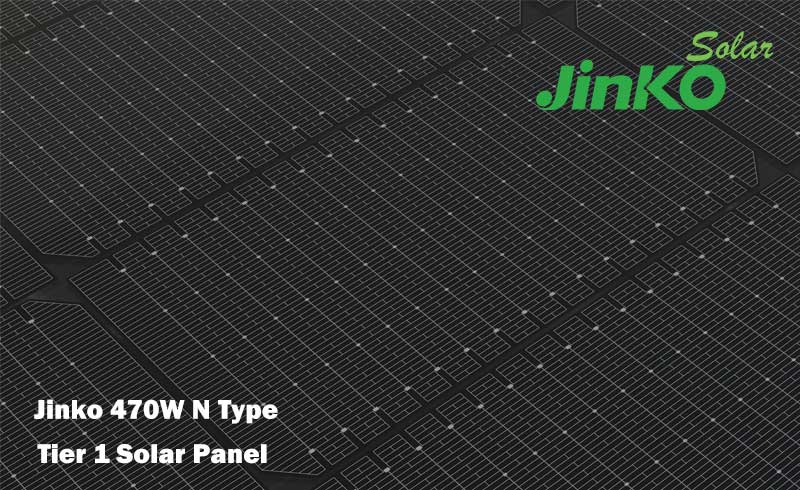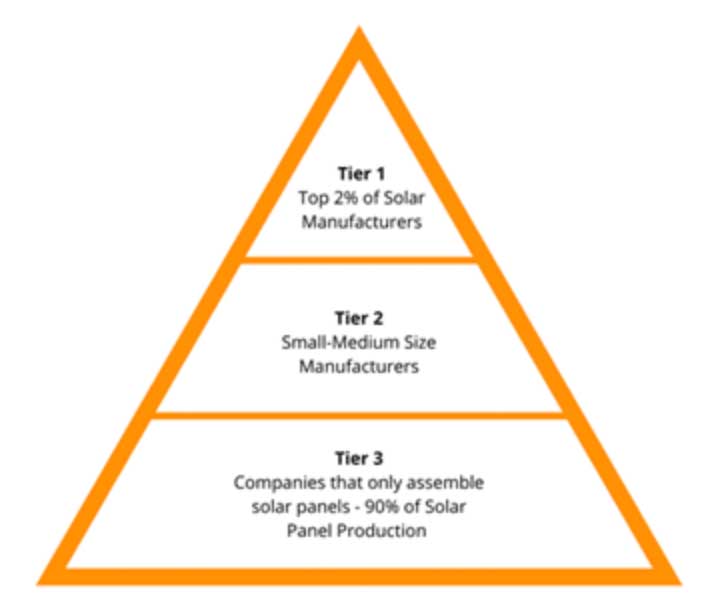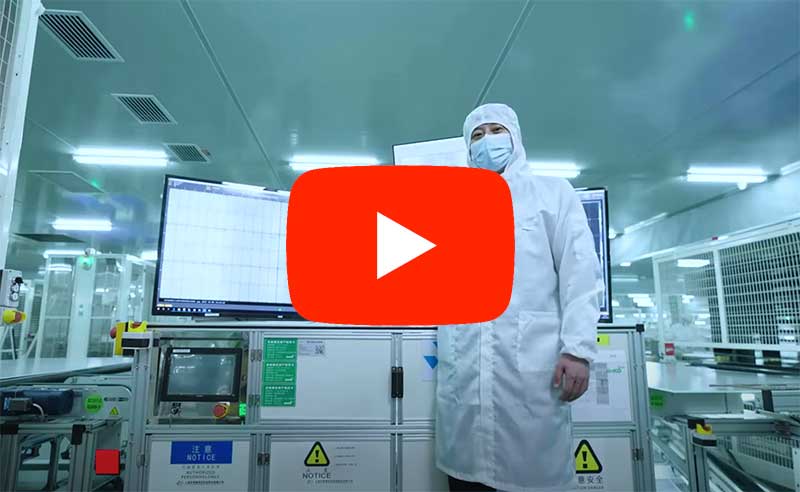Tier 1 is not used to describe quality, but to describe the businesses and organisations financial situation of the manufacturer. To be more specific, This is to test whether the manufacturer’s production line capability for the entire solar panel includes the entire component of the panels, rather than assembling through external procurement.
Solar panels are classified into Tier 1, Tier 2 and Tier 3. It can also be differentiated by annual degradation rate and future output efficiency

Tier 1 ensures minimum annual degradation rate
Tier 1 solar panels use the best solar cells such as TOPCon technology in N-type, which ensure the better solar panel performance. In addition, Tier 1 manufacturers use advanced robotic processes to control the manufacturing process, thereby minimizing or eliminating any human error in the manufacturing process. More importantly, there are much more investment on research and development every year to maintain their leading position in the competition of their peers.

Tier 1 is more reliable and advisable to purchase
Generally, Tier 1 solar module manufacturers are defined as these that:
· Has been producing solar panels for 5 years or more
· Either be publicly listed on a stock exchange or have a strong and stable balance sheet
· Has fully automated production and a high degree of vertical integration
· Invest heavily in marketing their brand
· Reputed in the industry for quality and service

Tier classification is nothing to do with quality. It is a rating of solar panels by Bloomberg, which uses deep financial insights into manufacturers to determine which brands are eligible for listings, especially tier 1 listings. Of course, this list is dynamic, with new additions and removals.
This list is updated every quarter, offering a view for bankability. From a Bloomberg perspective, the definition of bankability refers if solar products are likely to be offered non-recourse debt financing by banks.
So, you can refer to this list as it is believable. If a company can really control all the components of the solar panel in its own hands, the quality will be more controllable, thus reflecting premium quality, although Bloomberg will not directly declare the quality parameters
The important thing is if you have big chance to get completed warranty services from the manufacturer during 25~30 years lifespan of your panels?
It’s important to choose panels properly
Because the warranty period of solar panels is the longest compared to inverters and batteries, and the average overall investment ratio is relatively high, if you use a tier 1 board on your roof, your Warranty is good.
Jinko 470W as a popular N-type, its product warranty is up to 25years and performance warranty is up to 30 years. It is precisely because Jinko is in the tier 1 list all the year round that they promise such a long warranty period.

